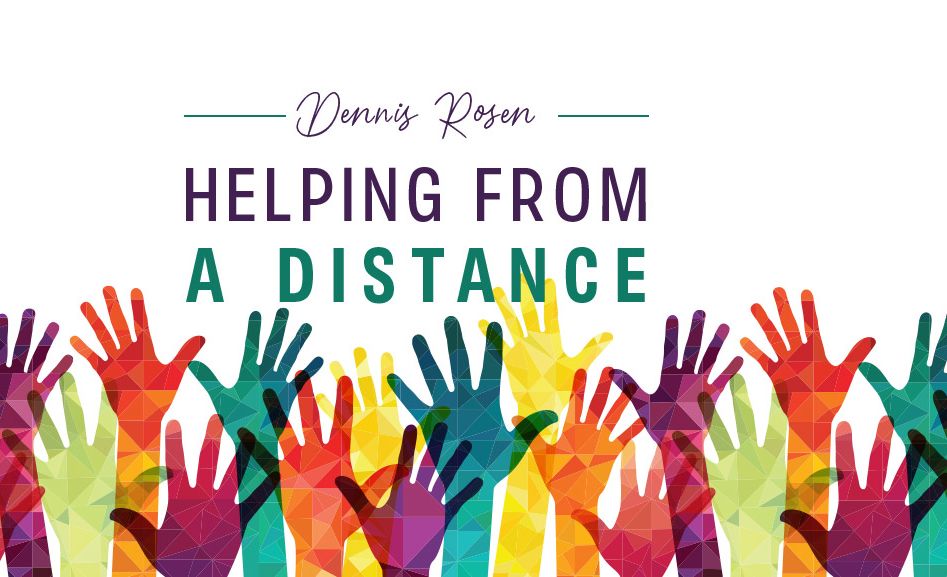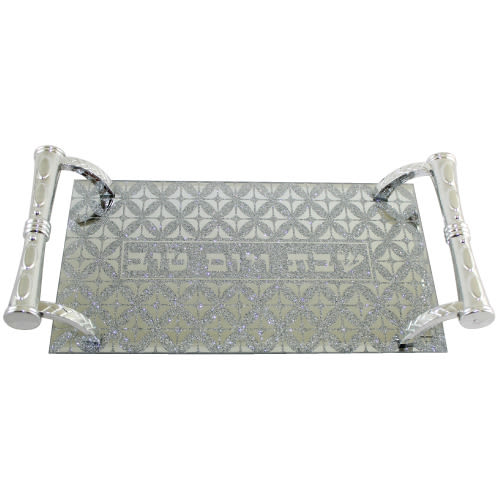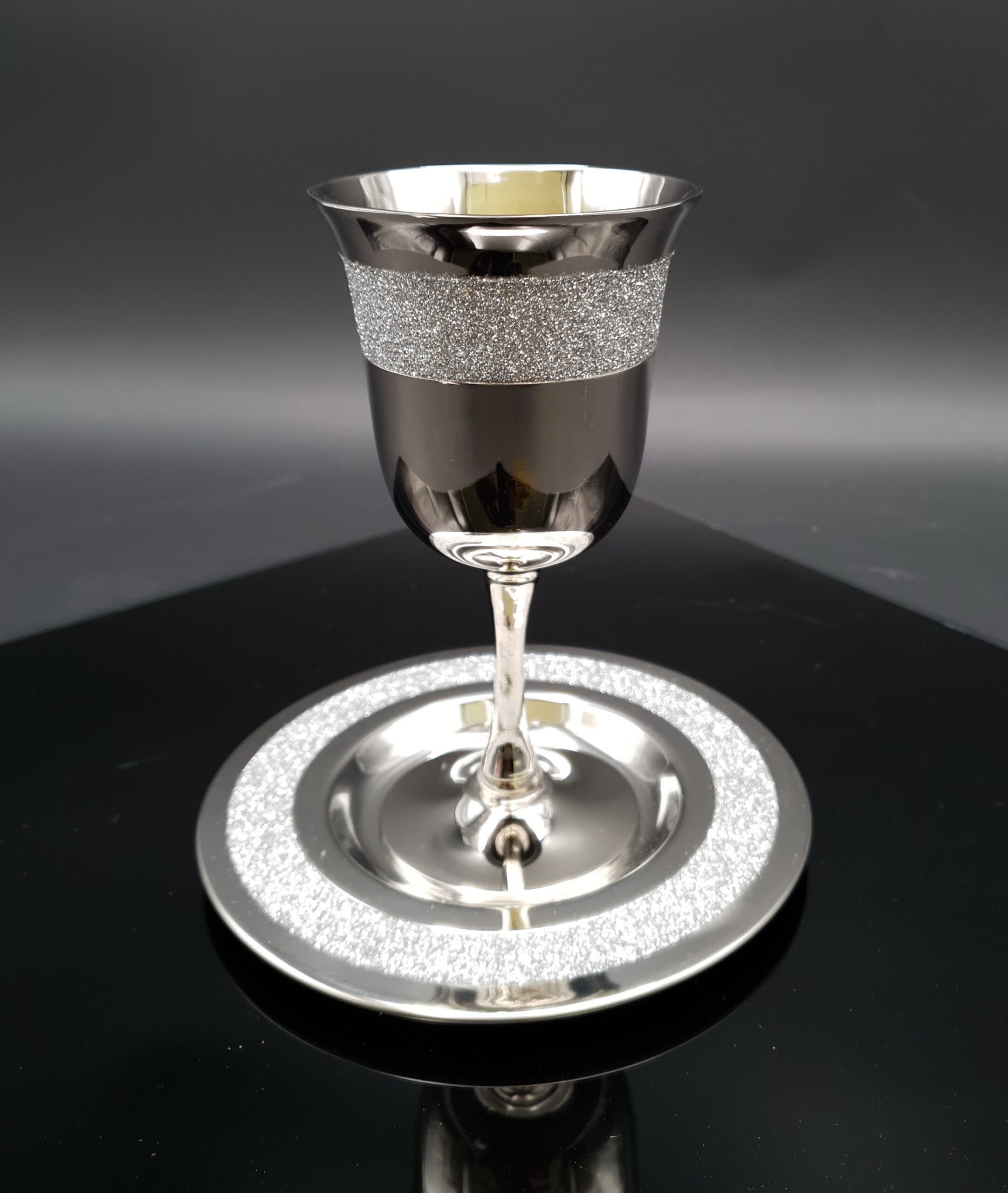
Finally, At Home!
More yelling. A few minutes later, the driver screamed at everyone to get back in. We climbed back into the taxi —- wet cast and all. This scene repeated...

3. Finally!
Before leaving San Francisco, my neighbor said to me, “Debbie, if you have any problems, go to my sister in Kfar Chabad. It’s right next to the airport. She’ll be more than happy to help you.”
Because my flight was overbooked, I was bumped to different flight. The people who were supposed to pick me up at the airport were not there – they had come and left. I decided to take up my neighbor on her offer and spend the night in nearby Kfar Chabad before traveling to Yerushalayim the following day. Since very few Israelis had phones, it was impossible for me to phone and let her know that I would be coming.
I took a taxi to Kfar Chabad. When we arrived at my neighbor’s sister’s house, the house was dark. The driver asked me where he should go from there. Trying to sound calm, I told him that I had no idea where to go, and that I just needed a place to spend the night.
“I would take you home myself,” the driver explained, “but I have ten children of my own, and we just don’t have room for another one.”
I felt like a real neb.
The driver circled the village, asking anyone he saw on the darkened street if they knew of a family willing to take in a teenager. “It’s only for one night,” I added. But one look at my luggage was more than enough to convince anyone that it wasn’t worth the risk.
One very kind family finally agreed to take me in. “But,” the lady of the house firmly warned me, her eyes darting suspiciously to my luggage, “it’s only for one night. You cannot move in with us.”
My first encounter with modern-day Ivrit occurred in the washroom. There was an innocent looking spray can of "metaher avir” waiting to be used – but I had no idea for what. The word metaher conjured up images of the Parah Adumah, the Red Heifer and the Beis Hamikdash, the Holy Temple in Jerusalem, while avir, I knew, meant air, as in the verse about the air of Eretz Yisrael makes one wise. But what in the world did all this have to do with the bathroom?
It studied the spray can for a few moments until the meaning finally dawned on me. I left the washroom laughing hysterically, but as much as I tried to explain to my hosts the humor of their air-freshener, no one seemed to get the joke — except me.
I spent the night listening to the cows and the crickets, and dreaming of the following day.
4. Yerushalayim, at Last
I arrived in Yerushalayim the following morning and brought my belongings directly to the apartment I had arranged to rent with several friends so that I could tour the country before starting seminary in September.
After joyfully hugging my friends and dumping my luggage on the bed, I left for Meah Shearim to buy a pita-felafel for lunch.
The Yerushalayim I encountered in 1970 was very different from the Yerushalayim I live in today. There were very few cars and only one traffic light — at the corner of Yaffo Street and King George. In the winter, a horse-drawn wagon drove through the streets, clanging its bell. Housewives would rush outside to fill Jerri cans with kerosene for their tiny heaters. Very few people owned ovens, and most people baked their challot and cakes in a “Wonder pot” – a small round pot that was placed over one of the burners on their two-burner stoves, and Meah Shearim Street was paved with uneven cobblestones. Rushing to return to my friends, I slipped and twisted my foot on the cobblestones. Although I was standing, the pain was so intense that I was incapable of moving.
Two aristocratic Chassidic women, wearing black shawls over their black tichels, noticed my predicament and came over to see if they could help me. I pointed towards my foot and, in my best Hebrew said, “Regel (foot), OUCH! Kisei (chair)!” I hoped they would understand that I wanted to sit for a few minutes until the pain subsides.
The two women helped me to sit down, and then removed my shoe to get a better look at my foot. “I think it’s broken,” one of them said in perfect English. “We’ll take you to the hospital.”
“Another daled amos (four cubits) of Eretz Yisrael!” I enthused.
They just rolled their eyes and smiled politely.
Looking back, I am amazed at how these two women were so willing to assist a total stranger. They spent hours helping me find my way through the maze of bureaucracy in the emergency room, and then brought me back to my friends and helped me into own bed.
5. Hadassah
The first two words of Hebrew that I learned in Eretz Yisrael were “kabbayim,” crutches, and “kisei galgalim,” wheelchair. Unfortunately, the person in charge of the storage room where these items were kept was away on reserve duty, and he was the only one with access to these precious commodities.
I hopped from the emergency room to the X-ray department, back to the emergency room and then to the plastering room, where I was given a real Israeli-made cast. “Now,” I smiled to my new friends, “I’ll really FEEL each step that I take on this holy soil.”
They just rolled their eyes – again.
The women decided that we should return home by sherut, a shared shuttle cab that delivers each person directly to his door.
Israeli taxis of the ‘70s were designed to hold seven passengers, six in two back seats, and one next to the driver. My friends and I somehow managed to climb into the very back seat.
It took over half an hour for the taxi to fill up. When the driver stated a price, everyone started arguing over an amount that, converted into American dollars, was less than twenty-five cents. As the conversation became more heated, my eyes grew wider and I stared in wonder. I had never –- ever — in all my seventeen years, seen grown-ups behave like that.
A few minutes later, the driver yelled, “Forget it. I’m not taking anyone. Everyone out!”
We climbed out of the taxi –- wet cast and all.
More yelling. A few minutes later, the driver screamed at everyone to get back in. We climbed back into the taxi —- wet cast and all. This scene repeated itself several times.
Just as we were about to drive away, an elderly Yemenite woman -– replete with embroidered pants under her billowing flowered housedress –- ran toward the taxi, yelling, “Rega, reeeegggaaaa …”
She approached the taxi and (I know this is going to sound unbelievable, but it really did happen. I could never have dreamed up anything as strange as this…) vomited over the front hood.
If I thought the haggling over the twenty-five cent difference in fare was strange, I was in for a real shock. I never — ever – heard anyone yell the way the driver did. It’s probably a good thing that I didn’t understand Hebrew, because I am sure that much of what he was saying would be unsuitable for publication.
I started giggling.
“Why are you laughing?” the woman next to me asked.
“Because …” I really didn’t know how to answer that question. Finally, I just blurted out, “I’ve never seen grown-ups behave like this.”
There was utter silence. Then everyone burst into an even angrier tirade — but this time, their fury was directed at me.
Somehow, we managed to find our way back to my apartment. My friends were wondering where I had disappeared to. I just hoped that they had not alerted the police.
And yes, two days later, as I laboriously walked down the steps to Shaar Shechem and through the Arab shuk on my way to the Kosel, I really did feel every step of the way.
I had finally come home.
(More of Debbie Shapiro's stories can be found in Bridging the Golden Gate)













Tell us what you think!
Thank you for your comment!
It will be published after approval by the Editor.